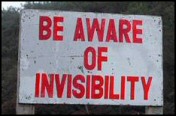I would like to get a few things about humour off my chest.
Firstly, political correctness is strangling wit. For example, the phrase: ‘call a spade a spade’ was common
place in the Victorian era; it was only in the 1930s that it developed
the racial overtones, which means that we cannot use it any more.
- Internet “Meme”
- Internet
Humour -v- Humor on the Internet
Godwin’s Law- Doug Welch’s “Greenoch”
- Will and Guy’s Internet Humour
Internet “Meme”
The internet, much as you would expect, has its very own subversive
subculture. The web is awash with clever in-jokes and amusing video clips
that flit across cyberspace at the click of a mouse. These little nuggets
are known as “memes”, a term first coined in 1976 by Richard Dawkins in his
book The Selfish Gene to describe ideas or cultural phenomena, such as tunes
or jokes, that spread through similar mechanisms to those seen in biological
natural selection. The term has become popular as a way to describe internet
phenomena that proliferate “virally”.
Example of a “Meme”
Lolcats – amusing
pictures of cats accompanied by humorous captions full of deliberate
misspellings and peculiar grammar. Hence the name – “lol” is internet speak
for “laugh out loud”. The lolcat phenomenon first appeared on two
influential websites, the imageboard 4chan (4chan.org) and the comedy site
Something Awful (somethingawful.com), in about 2005. The idea was picked up
in 2007 by Eric Nakagawa, a blogger from Hawaii, who brought the phenomenon
to a wider audience, and whose website now receives as many as two million
visits a day. Lolcat captions have also inspired a programming language,
LOLCODE (tinyurl.com/2kh7np) and a translation of the Bible (“Oh hai. In teh
beginnin Ceiling Cat maded teh skiez An da Urfs…”; see lolcatbible.com for
more).
Internet Humour -v-
Humor on the Internet
“Internet humour” is distinguishable from “Humor on the Internet” through
the concept of ownership. There are definite examples of humour restricted by
copyright law on the internet; examples include the cartoons of Dilbert or
the newspaper columns of Dave Barry. “Internet humour” is regarded as that
which belongs to the public domain.
Internet humour may also be regarded as humour that specifically relies on
characteristics belonging to the Internet, such as “geek” or “hacker”
humour
(i.e., humour that would not exist if not for the Internet).
Generally, this type of semi-institutionalized humour starts as a specific
group’s in-joke, and grows until it reaches a significant portion of
Internet users, gaining popularity, “rules” and myths.
The concept of authorship with regard to Internet humour is very difficult
to define. Frequently a “list” type joke may get started but within a few
generations of distribution it evolves beyond recognition. A classic example
is the well-known “you have two cows” joke – after circulating in other
media throughout the 1980s, it seems to have first appeared on the Internet
in 1993 with simple descriptions of communism, capitalism, and socialism.
However, it was later expanded to include all forms of government, regional
variations, philosophical systems, and even art movements. Attempting to
define an “author” of the joke hence becomes impossible, and it becomes a
publicly owned resource, simply because no one could validly claim
legitimate ownership.
Though the Internet has allowed the global explosion of
collectively-authored comedy, its precursors existed on bulletin boards,
corporate messaging systems, and even through such low-tech mechanisms as
the facsimile since at least the 1970s.
Godwin’s Law (Also known as Godwin’s Rule of Nazi Analogies)
This internet law was proposed by Mike Godwin back in 1990. His law
states: “As a Usenet discussion grows longer, the probability of a
comparison involving Nazis or Hitler approaches 1 (certainty)”.
Doug Welch’s “Greenoch”
It’s hard to decide which martial art is the most powerful. Follows
of karate, Aikido, Jiu-Jitsu, and kickboxing all make strong claims.
To silence them all Doug created an ancient Scottish martial art called “Greenoch”
complete with a Kata and detailed descriptions of the weapons used.
Two unexpected turns of fate propelled “Greenoch” into the Meme hall of
fame. Firstly practitioners of other martial arts vehemently defended
their own sport. Secondly, people began to correct Doug and out-do his
account with ever more fanciful capabilities of this Scottish sport.
Will and Guy’s Internet Humour
We seek tales with an unexpected outcome or an unusual event.
We like stories with twists and turns; slow burning jokes that make us smile
at the punch line.
Here are a few examples of our favourite humour:
- The ‘Ass’ joke is the nearest we get to
blue humour. - As ex-teachers we like a good
school story. - We like amusing tales involving animals;
cow stories were surprisingly good. - We also like to collect
incongruous signs on roads, buildings or in the countryside. - We collect good jokes about every race without
prejudice. Here are our Jewish
jokes. - Marriage offers a rich seam of
mirth, without having to go into the bedroom! - Occasionally we venture into the
scary branch of humour, especially at Halloween.
Footnote:
Please send us your examples internet memes.
See more pictures of funny signs,
and silly labels
• Pictures of stupid signs •
Silly signs •
Funny warning labels •
Sat-Nav •
Funny gaffes
• Pointless signs
• Funny caution signs •
No dogs •
Funny warning signs •
Funny toilet signs
•
Rubbish notices •
Funny sign pictures •
Funny shop notices •
Strange signs PPT •
Clean jokes
